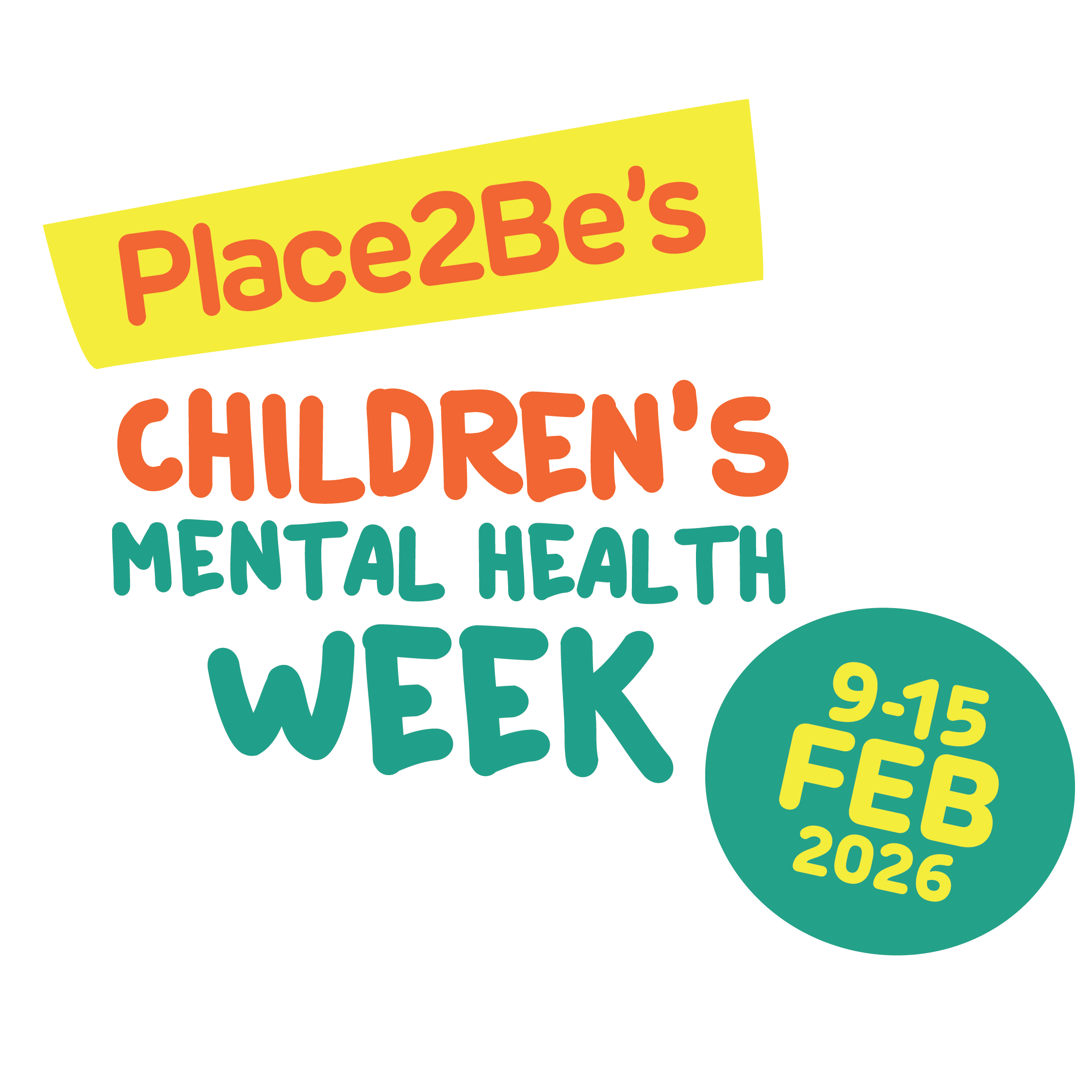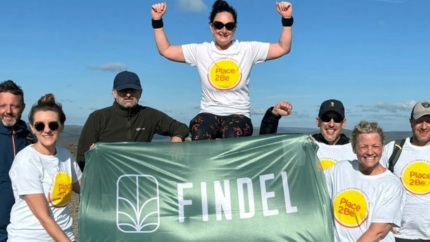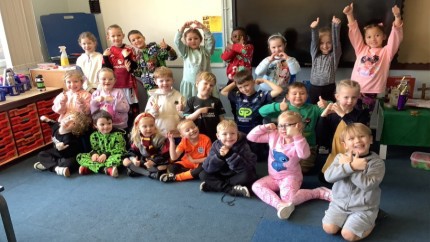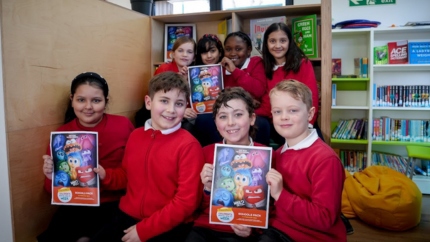My Voice Matters: children express what matters to them
What matters to you in your daily life and the wider world? Pupils at Grangetown Primary School in Wales took part in some of Place2Be’s Children’s Mental Health Week class activities to express what’s important to them, to learn about their rights, and to feel that their voice matters.

First, the pupils took part in whole class activities, focussing on conversations around feelings and learning that children have the same rights no matter their differences.
They learnt that “children have rights” to:
- be protected
- learn (have access to education)
- play and rest
- share what they think with others.
What matters to you?
In one activity, ‘What matters to you?’, pupils were invited to think about things in their lives that are important to them.
In his spiral, one six-year-old boy drew his friends, his favourite hobbies and games. Whilst drawing his spiral he said “It’s important to me to play with my friends, and on PS5… I want friends to come over and play with me”. He also reflected on school saying, “I want school to be more fun and less work” and on the importance of having fun - “I love playing football and hide-and-seek.”
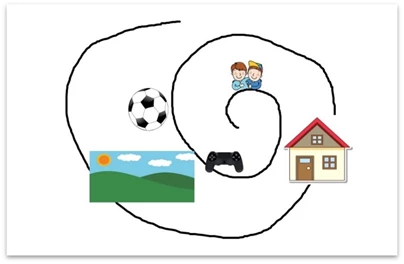
One 7-year-old girl drew her family at the centre of her spiral, and said “I love my family so much… School is important for me because you feel good when you learn.” She also shared the importance of friendships, and what it can feel like when there are difficulties in friendships: “My friends play with me so much. I feel excited. They fight with me and this makes me sad.”
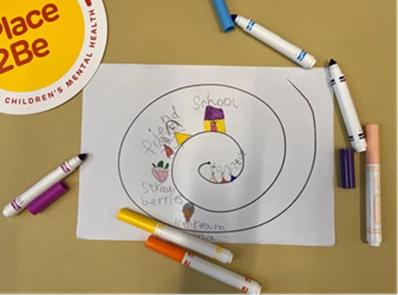
Lots of children said that their families were important parts in their lives:
"If I didn’t have a family, I wouldn’t have the best life. On my birthday, my mum bought me L.O.L. dolls." (Girl, 7 years old)
"I love my family. They are kind." (Girl, 7 years old)
"My mum (matters to me)." (Boy, 7 years old)
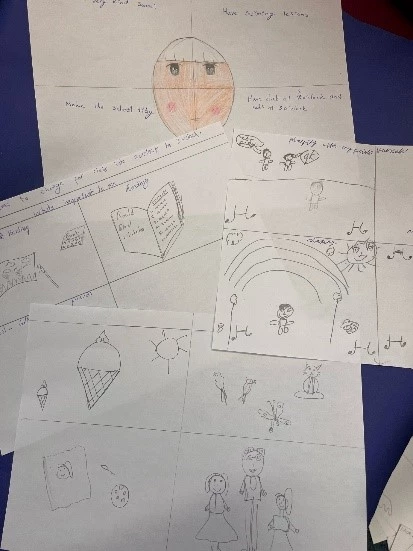
Pupils in years 4, 5 and 6 had conversations around the importance of using their voice. One pupil shared “My voice matters because if I’m hurt, I can speak to someone.” Another expressed that "my voice matters to speak up for myself and other people, and to my bullies”.
They also expressed what they would like grown-ups to know, and had several suggestions:
Common things that came up as important to them included family, friends, pets, religion, sports, education and what they want to be when they grow up.
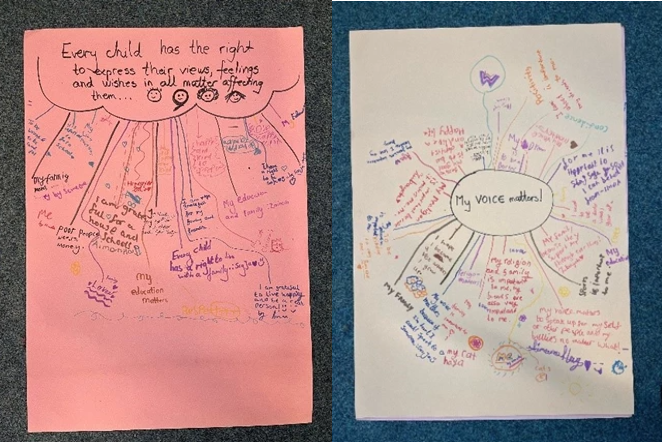
Children and young people who feel that their voices are heard - and that what they say makes a difference - have higher levels of self-efficacy and self-esteem. By taking part in Children’s Mental Health Week, you can help ensure that children and young people across the UK feel listened to, and know that they’re not alone.
You can find these activities, here at our Children’s Mental Health Week website.
